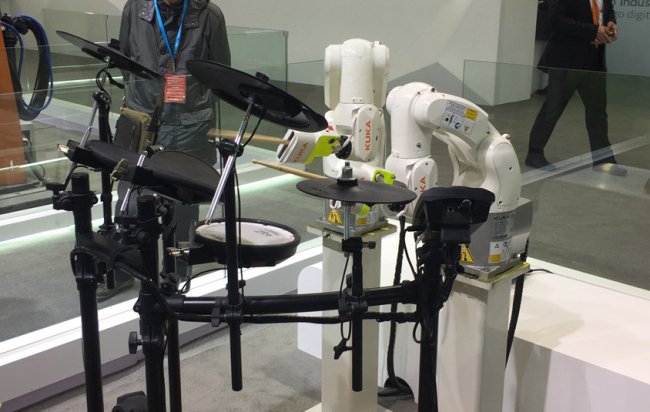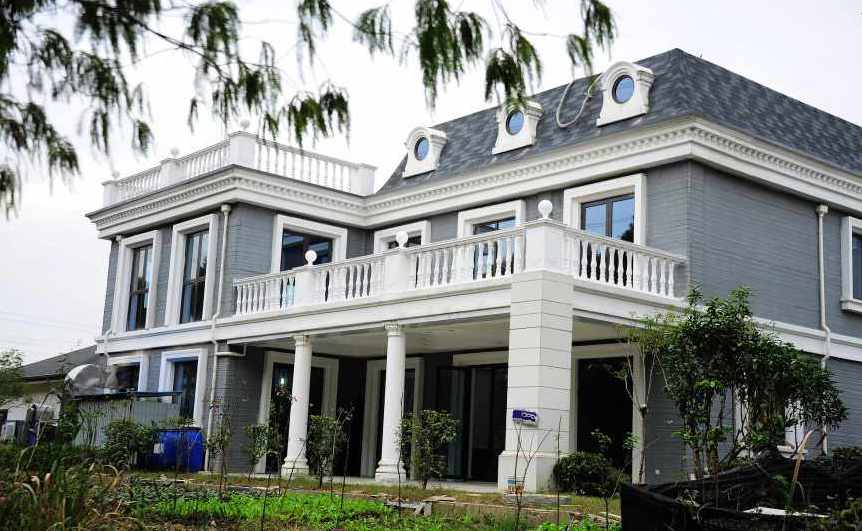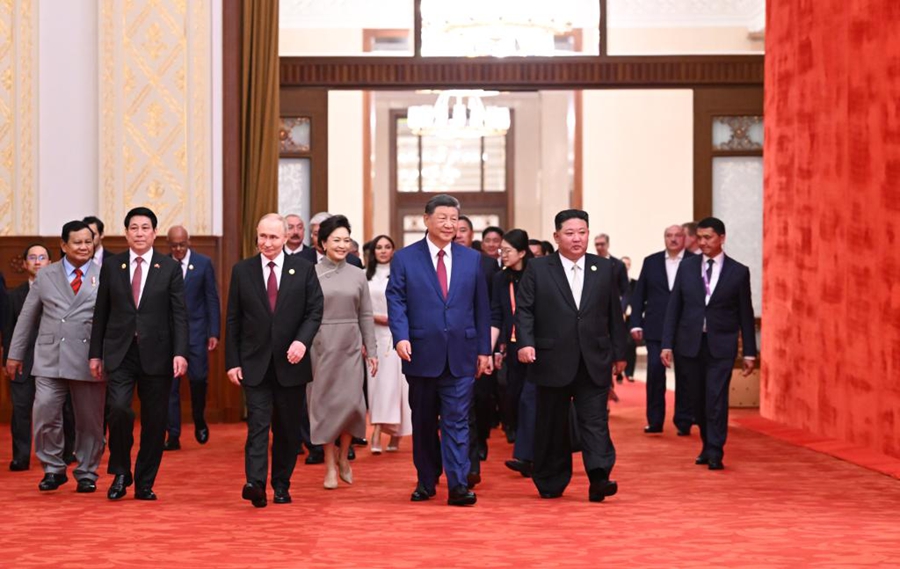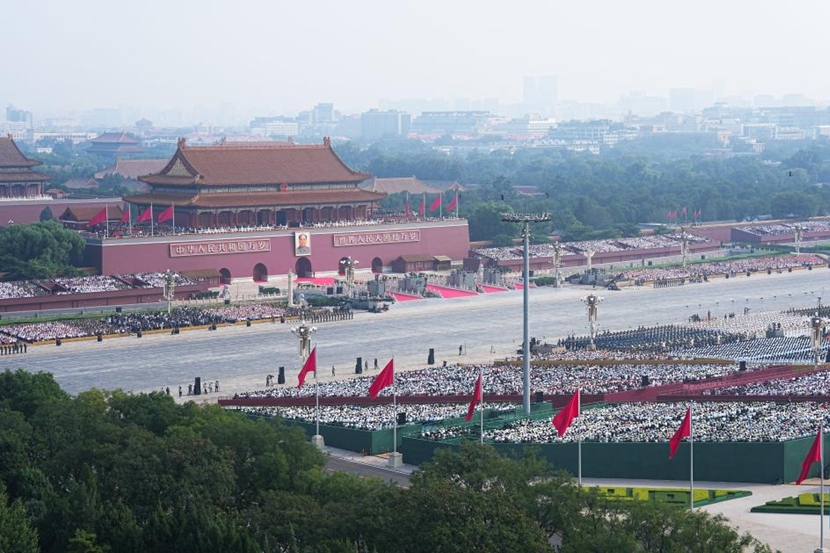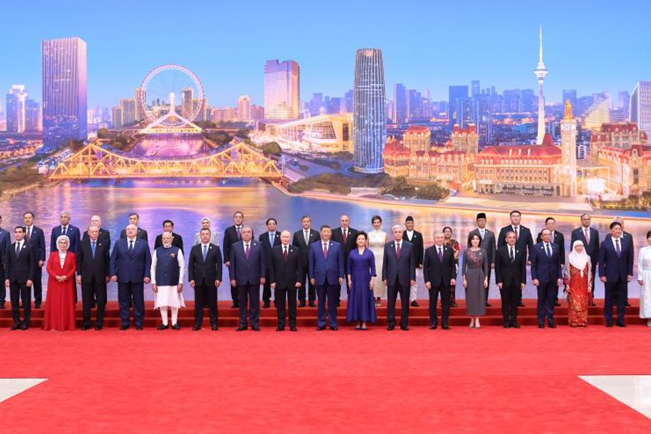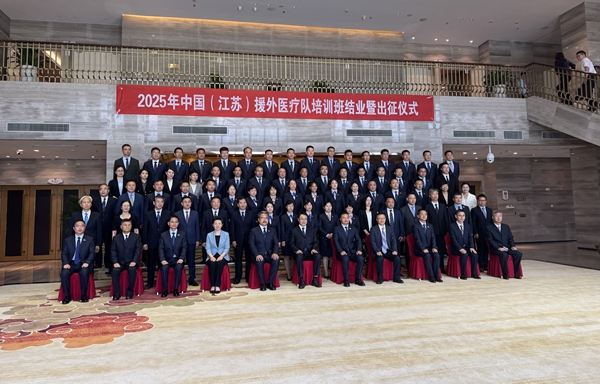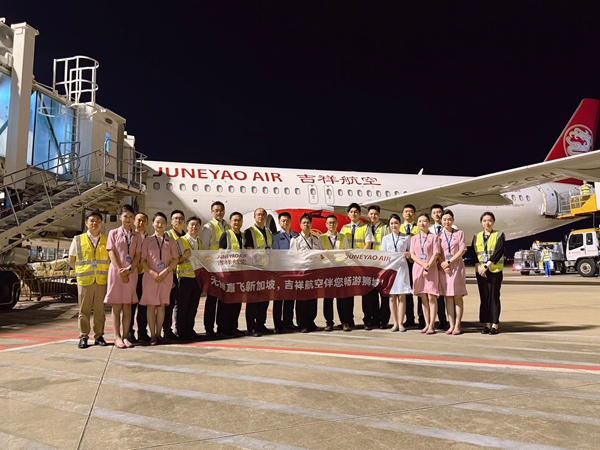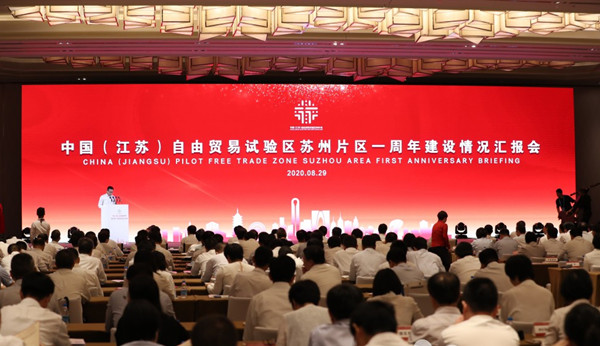
The Suzhou area of the Jiangsu Pilot Free Trade Zone has made great strides one year after its establishment, according to a press conference on August 29.
As the largest of all three areas of the Jiangsu Pilot FTZ, it added 1.3 foreign-funded companies, 3.8 new S&T projects and 116 market entities every working day. The output value by high-tech companies climbed up to account for 72 percent of the total.
Over one year, the Suzhou area has continued to deepen innovation in institutional system, industrial opening, and collaboration. It ranked first in a number of key indicators including attracting foreign investment, foreign trade, and making overseas investment. Three major emerging industries have also reported accelerated growth, helping Jiangsu pilot FTZ also take the lead in the country.
The Suzhou area has become a new platform for China-Singapore cooperation and promoted the rapid development of 12 industrial parks both in and outside China. It has facilitated 69 enterprises to invest in 78 projects overseas and implemented 35 pilot reform measures in partnership with 17 collaborative innovation regions.
To improve industrial upgrading, the Suzhou area is striving to build four 100-billion-yuan industrial clusters centered in new-generation information technology, high-end equipment manufacturing, biomedicine and nanotechnology applications. Currently, the industries of biomedicine, artificial intelligence and nanotechnology applications have reported growth of more than 20 percent.
On the front of S&T innovation, the Suzhou area has opened seven new overseas innovation centers and is home to over 1,400 high-tech enterprises and 15,000 new high-end talent. Companies from the Suzhou area are also participating two of five schemes to develop coronavirus vaccine in China.
In terms of institutional innovation, the Suzhou area has launched a total of 132 reform and innovation initiatives, and brought forth 66 practices.
Contact us at english@jschina.com.cn

